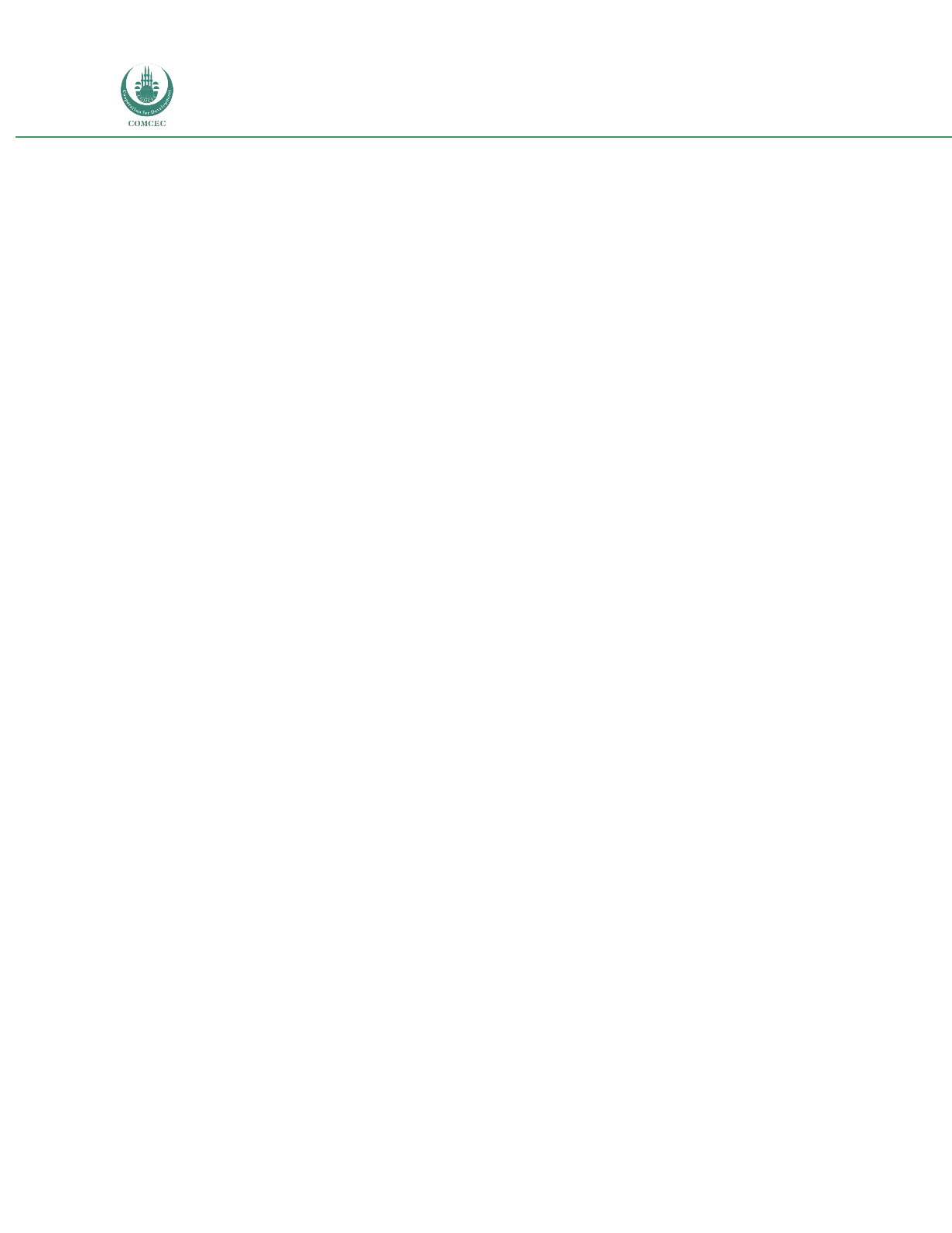

Strengthening the Compliance of the OIC Member States
to International Standards
130
9.
Does your country have any other agreements for standards cooperation with other countries,
including through regional and preferential trade agreements?
10.
Does your country play an active role in the work of any international standardization bodies, such
as ISO or the Codex Alimentarius? If so, please describe it.
11.
Does your country regularly notify new technical regulations and sanitary or phyto-sanitary
measures to the relevant WTO Committees? Are government officials in relevant ministries aware of
the notification obligation?
12.
Does standardization practice in your country conform to WTO standards, in particular in terms of
being non-discriminatory, the least trade restrictive measure available, and having a scientific basis
in the case of certain measures?
13.
Have there been any significant developments or improvements in your country’s standards
infrastructure (general or sector-specific) over the last five years? Please describe them.
14.
To what extent has trade-related technical assistance or external funding (multilateral or bilateral)
played a role in any improvements or developments described in the previous question? Which
agencies were involved, and what did they do?
15.
How do you expect your country’s standards system to evolve over the next five years? What
improvements are likely? In particular, do you expect to see increased reliance on international
standards, for example through harmonization?
















